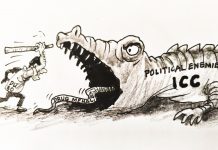
Teachers are supposed to facilitate knowledge, make it available to learners, and make sure its transfer to the latter is effectively done, resulting in the students’ fuller grasp of the lessons and the development of target skills. But what if a teacher does otherwise? Could it happen that a teacher becomes an obstruction to knowledge acquisition, instead?
Such a question is worth researching, indeed. For sure, it could happen. Very likely, in fact, it has been occurring everywhere since the instruction was institutionalized by formal education. Thus, we occasionally hear some students complaining about the inappropriate, oppressive, and sadistic teaching styles that certain teachers are using. Instead of learning, they stagnate and bog down mentally. Instead of being challenged and taking an interest in serious studies, some of them quit school and join the dropouts.
Teachers would not admit that, of course. The concerned ones may not even be aware that, by adopting certain styles or by imposing self-made policies, they are already blockading the supposed transfer of knowledge. Moreover, some may justify their obstructive style by claiming that it’s their way of avoiding the idea of spoon-feeding their students.
Accordingly, they do not want to spoil their students. They want them to exert much effort in acquiring knowledge by not making it readily available to them.
In a way, such justification makes sense. Spoon-feeding students with the lesson under study is not good and should be discarded by all means. But this idea is not also what we mean by facilitating knowledge. As a knowledge facilitator, a teacher need not open the student’s minds and pour in the knowledge they are to learn. Rather, the teacher ought to simply guide the students to the sure sources of knowledge. These could be the books that a teacher had chosen beforehand, the learning activities that she gives to the students, the educational tour that they had organized, the experimentation that the students engage in, or the observation that they are made to do. That’s facilitating knowledge.
Far from the claim of challenging students to learn, there really are teacher factors and practices that hinder knowledge acquisition on the part of the students. But these are not for the concerned teachers to divulge, as it would be embarrassing and suicidal. Rather, it’s for the students under them to identify. What are those factors and practices? It’s the students who are in the right position to give the answers as it forms part of their learning experiences. Not all students, though. Only those who have been under the tutelage of such teachers. And they have to answer objectively, without hatred or bias.
The challenge now is to look for those students. Where on earth could they be found? Well, the quest could become easier—try scouting for such teachers and you will find their victims: the poor students who could best answer the question, “what are the teachers-factors and practices that interfere with or hinder the students’ knowledge acquisition? That’s the research question to transform into a research problem.



